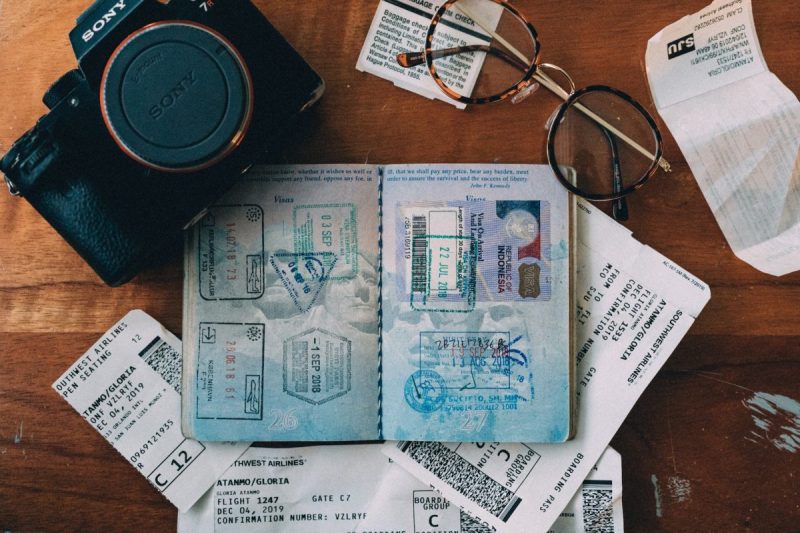If you’re planning a trip abroad, getting your passport in order should be at the top of your to-do list. And the first step in doing that is understanding how long it takes to get one. When I applied for my first passport, I had no idea how much time I needed to set aside … and let’s just say I had a few stressful moments before my international trip! So, how long does it take to get a passport? Let’s break it down.
Standard passport processing times

The U.S. Department of State handles passport applications and updates processing times regularly. According to the U.S. Department of State, as of now, here’s what you can expect:
- Routine processing: four to six weeks
- Expedited processing: two to three weeks
These timelines include the time it takes for your application to be processed but do not include mailing time. Add an extra one to two weeks for shipping, depending on the delivery method you choose. If you’re mailing your application to the passport agency, the clock starts ticking once your application is received, not when you drop it in the mailbox.
Since delays can happen, always check the official U.S. State Department website for the most up-to-date information on processing times.
What factors can delay passport processing?

While the U.S. Department of State gives standard timelines, factors like these can cause delays:
- Missing or incomplete documents. If your application is missing key information, like a birth certificate or a properly taken photo, it will be delayed.
- Peak travel seasons. Processing times are often longer in spring and summer when many people are preparing for vacations. Submit your application well in advance to avoid a last-minute panic.
- Errors in your application. Even a small mistake can trigger delays. Make sure all forms are filled out correctly and your signature matches other official documents.
- Mailing delays. Standard mail can add extra days or even weeks to the process. Opt for tracked or expedited shipping if you’re on a tight timeline.
- Background checks. If there are any discrepancies or issues with verifying your identity, additional checks may be required, which can extend the timeline.
What if you need a passport urgently?

Life happens! If you need a passport urgently, here are your options:
- Expedited processing. You can pay an additional fee to have your passport processed in two to three weeks. When applying, check the expedited box on your application form and include the $60 fee.
- Agency or center appointments. If you need your passport in less than two weeks, you can make an appointment at a passport agency or center. These appointments are reserved for urgent international travel within 14 days. Keep in mind that proof of travel, like flight tickets, is usually required.
- Private passport expediting services. There are third-party companies that specialize in expediting passports for a fee. They can often get your passport faster than standard expedited processing, but their services can be pricey. Be sure to research and choose a reputable company.
Timing for first-time passport applicants vs. renewals

How long it takes to get a passport can also depend on whether you’re applying for the first time or renewing an existing one.
How long does it take to get a passport if I’m a first-time applicant?
If you’re applying for a passport for the first time, you must do so in person at a passport acceptance facility (like a post office, library, or courthouse). The timeline starts once your application is received and reviewed.
How long does it take to get a passport if I’m renewing?
Renewals can often be done by mail, which is more convenient and sometimes faster. To qualify for renewal by mail, your current passport must meet specific requirements, like being undamaged and issued within the last 15 years.
How to track your passport application

Once you’ve sent off your passport application you can track your application online. Here’s how:
- Go to the U.S. Department of State’s tracking page.
- Enter your last name, date of birth, and the last four digits of your Social Security number.
- Check your status.
It can take a few days for your application to appear in the system, so don’t sweat it if it’s not immediately visible.
When should you apply for a passport?

If you’re planning a trip, applying as early as possible is the golden rule. Ideally, you should apply at least three to four months before your travel date. This allows plenty of time for standard processing, mailing, and unforeseen delays.
Also, remember that some countries require your passport to be valid for at least six months beyond your travel dates. Check the entry requirements of your destination before booking your trip.




